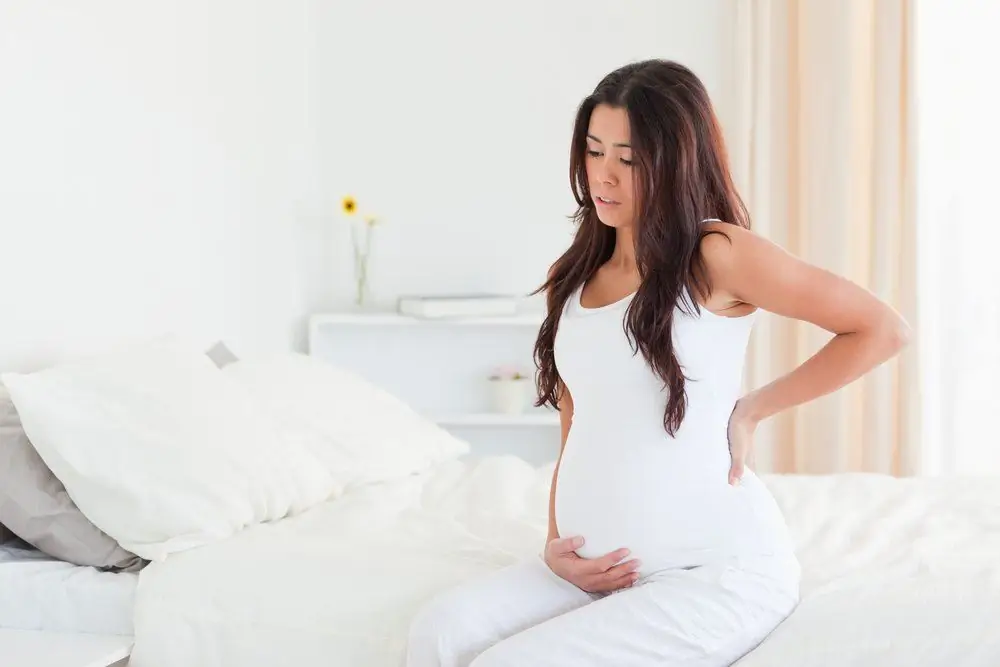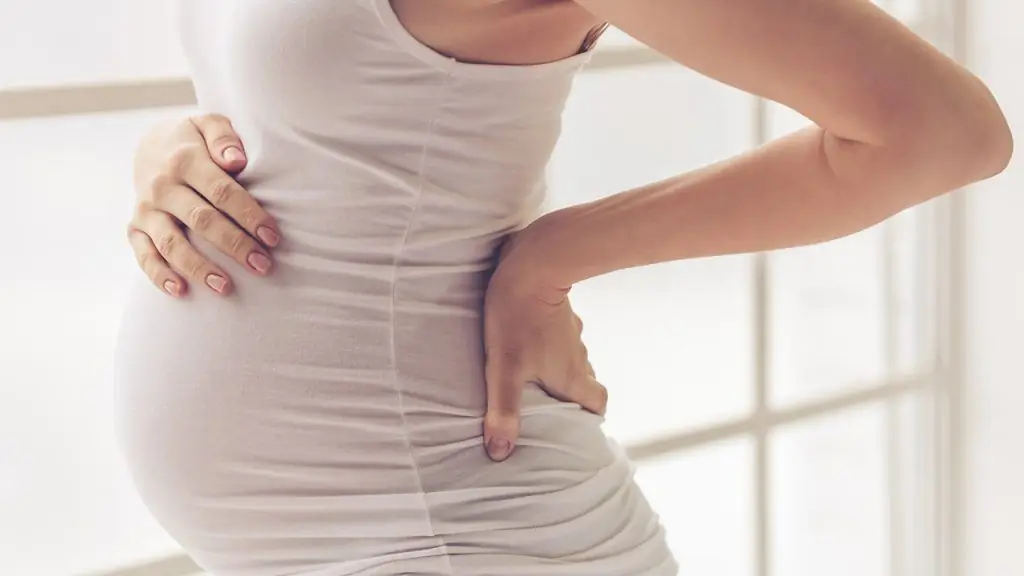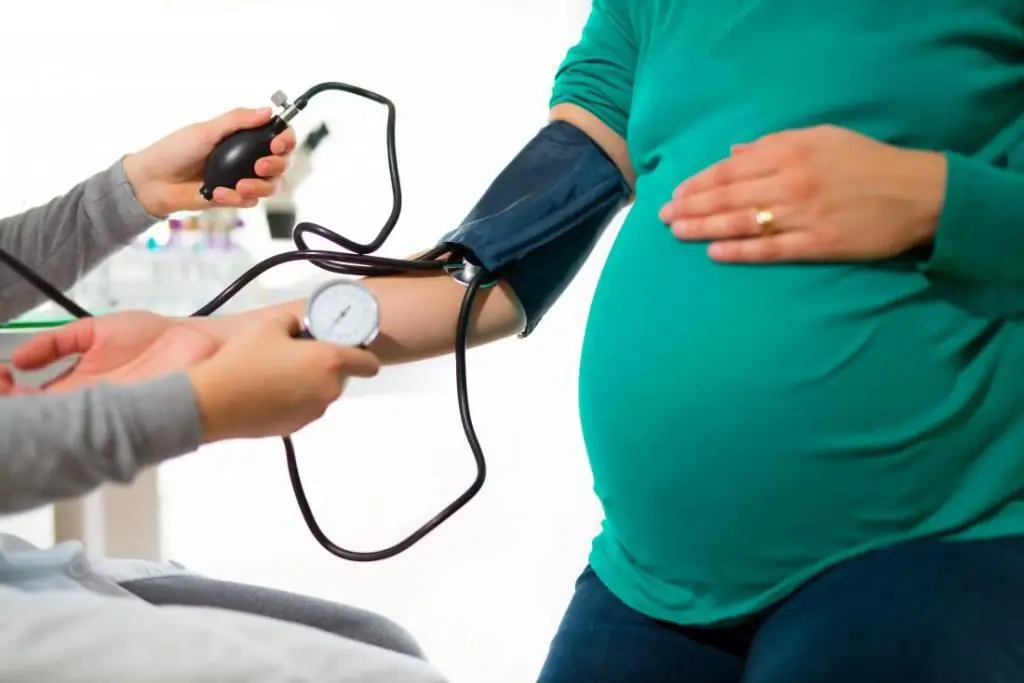2026 Author: Priscilla Miln | miln@babymagazinclub.com. Last modified: 2025-01-22 17:55:26
Any change in the baby's he alth makes mom worried. If mood swings, tearfulness and irritability are accompanied by the appearance of a cough and runny nose, then the parents have no doubt at all that a viral disease is to blame. But such symptoms are characteristic not only for SARS, but also for the process of teething. Can there be a cough at the same time, what should it be, should it be treated and how to alleviate the baby's condition? The answers to all these questions are presented in the article.
Eruption symptoms

Babies usually have their first teeth at six months of age. This process gives the child unpleasant sensations, as a result of which he becomes capricious, excited, whiny. The most common teething symptoms are:
- swelling and redness of the gums;
- increased salivation;
- diarrhea;
- runny nose;
- temperature increase;
- restless sleep;
- loss of appetite.
Usually, the above signs appear in the baby 3-5 days before the first tooth erupts. But all children develop differently, so you should not rely entirely on these terms.
The main symptom preceding teething is soreness and swelling of the gums. Also, some children begin to cough, and due to increased salivation, they develop a rash on their cheeks and chin. But most of all, moms are worried about whether there can be a cough during teething. Let's dwell on this issue in more detail.
Can there be a cough during teething?

Usually this process is accompanied by a decrease in immunity and a deterioration in the general condition of the child's body. But parents should not be very upset and worry in advance. This is a completely natural physiological process for the body. The child will again be cheerful and cheerful as soon as teeth appear above the surface of the gums. And when teething, a cough can be, and this is far from uncommon.
The task of parents is to be able to distinguish it from an acute respiratory viral disease in time. With a decrease in immunity, catching SARS and even the flu will be very easy.
Causes of cough
An experienced mother can almost accurately determine when a baby is teething. It's right awaynoticeable by his behavior, a sharp change in mood and other symptoms described above. But the most common causes of coughing during teething in infants include:
- Accumulation of saliva in the throat as a result of increased salivation.
- Irritation by mucus discharged from the nose, back of the throat. As a result, the child begins to cough reflexively, that is, in response to an irritant (snot).
- Acute respiratory illness with runny nose, cough, sore throat, fever.
- Sore throat. If a baby has a stuffy nose, he involuntarily opens his mouth to breathe through it, causing the nasopharynx to dry out.
To decide on further actions and the need for treatment, it is important to be able to recognize the type of cough as early as possible and find out the cause of its occurrence.
How to distinguish teething cough from SARS?

The most common symptoms of teething include a runny nose, slight fever and diarrhea. But coughing during teething occurs extremely rarely. And it depends on its type whether it is a manifestation of a physiological process or a consequence of a developing viral disease.
Most often, teething cough in children is wet. It is accompanied by profuse salivation, as a result of which irritation appears on the skin around the mouth. This cough usually goes away on its own without any special treatment.
When SARS symptoms are more pronounced. The child coughs much more often, a copious amount of transparent secretion is separated from the nose, nasal breathing is difficult. The temperature may be elevated or normal. Along with this, shortness of breath and wheezing are often observed. Even a non-medical person can tell if a child has a respiratory infection.
When to see a doctor?
If the cough is wet and the child manages to cough up, while breathing through the nose is not difficult, the temperature is not elevated, and the mother is sure that the baby is teething, you can wait a little while calling the pediatrician at home. As a rule, the eruption process lasts from two to five days. As soon as the teeth appear from the gums, all symptoms usually disappear on their own. All this time, it is necessary to closely monitor the condition of the baby, monitor his temperature and general well-being.
Even an experienced mother, teething cough can easily be confused with SARS. The symptoms of these two processes really have much in common. So when should you see a doctor? Calling a specialist at home is mandatory in the following cases:
- when body temperature rises to 37° and above;
- if a wet cough lasts more than 5 days;
- when the child feels worse.
The pediatrician will definitely examine the child and, if necessary, prescribe treatment. But if the cough causes a lot of anxiety in the mother, you can consult a doctor earlier to make sure that the baby is really cutting.teeth.
Duration of cough on teething

The fact that on the eve of the appearance of the first teeth in a child more saliva begins to stand out is a fact. At this time, even clothes have to be changed several times a day, so quickly it becomes wet. And there is no need to talk about irritation on the neck, chin and cheeks. But if there is a cough during teething, not all mothers know, since this symptom is rare.
Much more often the baby is worried about a runny nose, sometimes the temperature rises to 37-37, 5 °. If a cough joins these symptoms, do not panic in advance. It usually goes away in 2-3 days along with the appearance of teeth. Most often no special treatment is required.
Rhinitis when teething
If coughing on the eve of the first teeth is a rare phenomenon, then snot in babies during this period almost always appears. This is explained by the fact that the gums and nose have a single blood supply system. And this means that the development of the inflammatory process in one organ immediately leads to increased production of mucous secretions.
Usually, a transparent secret is released from the nose, which passes simultaneously with the appearance of teeth. If the color of the mucus has changed to yellow or green, this may indicate the addition of a bacterial infection.
Since immunity is greatly reduced during the same period, a doctor may recommend taking antiviral drugs to prevent SARS. Effective according to manydoctors, you can count the candles "Viferon". To anesthetize the gums and relieve inflammation, you can give the child "Nurofen" or put candles "Viburkol". Any prevention and treatment is carried out only on the recommendation of a doctor.
Is it necessary to treat a runny nose and cough during teething?

To alleviate the condition of the child during this period, first of all, you need to eliminate the runny nose. It is the snot flowing down the back wall of the nasopharynx that irritates the mucous membrane and causes attacks of dry or wet cough. Therefore, the nasal passages of the child should be regularly cleaned and moistened. To do this, it is recommended to purchase an aspirator or a small syringe. Use this device as follows:
- Squeeze the air out of the syringe.
- Gently insert the tip of the "pear" into one nostril, and pinch the other with your finger.
- Open the hand holding the syringe. As it fills with air, the "pear" will begin to draw mucus out of the nostril.
- The other side of the nostril should be cleared in the same way.
Cough and snot during teething most often do not require special medical treatment. But if the symptoms persist for 3-4 days, it is recommended to take the child to the doctor.
Cough Treatment Methods

First of all, you need to deal with a runny nose, since it is the cause of the cough. To cleanse the nose, you must regularly use a syringe or aspirator, and to moisten it with a special agent based on marineAquamaris water or homemade saline solution. Additionally, the doctor may prescribe vasoconstrictor drops to reduce swelling of the mucous membrane and facilitate nasal breathing.
But a cough as such does not need to be treated. For children under the age of two years, mucolytics (drugs that thin sputum and remove it from the lungs) are prescribed in rare cases and under the special supervision of a doctor. And in some countries they are completely banned. Such drugs will definitely not give the expected effect, but there can be many complications from them.
Doctor Komarovsky's advice
A well-known pediatrician gives the following advice on whether teething cough is possible and how it should be treated:
- Strictly follow all the doctor's recommendations and do not try to treat the child yourself.
- If the pediatrician determines that the cough is due to teething, they will most likely not prescribe medication.
- Children under three years of age should not be treated with expectorants as they cannot cough up phlegm.
- If a high (above 38°) temperature joins the cough, it is most likely a viral infection.
- If on the eve of teething the child has already had SARS, you should ask the doctor to prescribe preventive treatment. In this situation, against the background of weakened immunity, the child has a high chance of "catching" a new disease.
Parents' feedback on the problem

Here's what moms say when asked if teething can be accompanied bycough.
- Even if a child does not have a runny nose, but saliva is plentiful, he can cough quite strongly. In such cases, treatment is not prescribed, since it is guaranteed not to give the desired effect.
- If a child coughs, you should take him to the doctor. Only a specialist can, after listening to his lungs, make the correct diagnosis. There is no need to let the situation take its course, because in young children against the background of reduced immunity, pneumonia develops very quickly.
- Cough from excessive salivation most often occurs during the day, and at night it is associated with the flow of mucus down the nasopharynx. In order for the child to cough less during sleep, it is recommended to position his head at an angle.
- Regular airing of the room, wet cleaning, rinsing the nose with saline will help get rid of a runny nose and cough.
Thus, to the question of whether there can be a cough during teething, parents answer in the affirmative. But it is not as scary as it might seem at first glance, and with proper care of the nose it passes quickly enough even without special treatment.
Recommended:
How long you can not sit with stitches after childbirth: the rules of treatment, recovery of the body and recommendations of doctors

The birth of a child is perhaps the process that every woman must go through. Feelings from the crumbs that were born are incomparable with anything, and are never forgotten. Unfortunately, labor does not always go smoothly. Sometimes there are incisions on the internal genital organs, which are sewn up immediately after childbirth. Accordingly, newly-made mothers are concerned about a lot of questions, for example, about how long it is impossible to sit with stitches after childbirth
Pain during urination during pregnancy: causes, possible deviations and diseases, treatment methods

Pain during urination in women during pregnancy is an unpleasant phenomenon, and in some cases dangerous to the he alth of the mother. After all, it is during the period of gestation that the female body is most vulnerable to various kinds of infections
Placenta accreta: symptoms, causes, diagnostic methods, possible risks for mother and child, treatment methods and recommendations from gynecologists

The placenta is an embryonic organ that allows the fetus to receive oxygen and nutrition during pregnancy. In the normal state of the woman and the correct course of pregnancy, the placenta is attached at the top of the uterus and remains there until the very time of childbirth. After the birth of a child, it exfoliates from the wall of the uterus and comes out
How dangerous is a cough during pregnancy. Cough during pregnancy: treatment

In this article I would like to talk about how dangerous a cough is during pregnancy and what needs to be done to cope with this symptom. You can read about all this and much more about what is useful in this text
Hypotension during pregnancy: possible causes, symptoms, treatment, normal pressure during pregnancy, advice and recommendations from a gynecologist

What is hypotension during pregnancy? Is it a simple ailment, or a severe pathology that requires immediate medical attention? That is what we will talk about today. During the period of bearing a baby, every woman is faced with various ailments, because the body works "in three shifts", and gets tired in order. At this time, chronic diseases are exacerbated, and "sleeping" ailments are awakened, which could not be suspected before pregnancy

